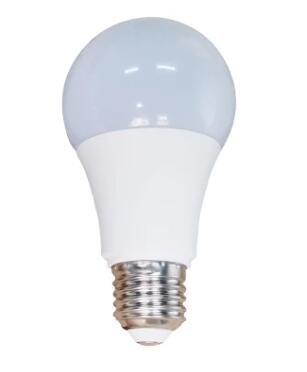What are the key advantages of LED bulb lights compared to traditional ones
2023-10-25
LED (Light Emitting Diode) bulb lights offer several key advantages compared to traditional incandescent and fluorescent lighting technologies:
1. Energy Efficiency: LED bulbs are highly energy-efficient, consuming significantly less electricity than incandescent bulbs. This efficiency translates to lower electricity bills and reduced energy consumption.
2. Longevity: LED bulbs have a much longer lifespan than incandescent bulbs. They can last tens of thousands of hours, reducing the frequency of bulb replacements and associated costs.
3. Durability: LED bulbs are more durable and resistant to shock, vibrations, and temperature variations, making them ideal for outdoor and rugged applications.
4. Instant Lighting: LED bulbs provide instant full brightness without warm-up time, unlike some fluorescent lights that may take a few moments to reach their maximum output.
5. Color Temperature Options: LED bulbs offer a wide range of color temperatures, allowing you to choose lighting that suits your specific needs, from warm, soft white to cool, daylight white.
6. Dimmability: Many LED bulbs are dimmable, providing flexibility in adjusting the light intensity to create the desired ambiance.
7. Directional Lighting: LEDs emit light in a specific direction, making them more efficient for focused or directional lighting applications. This reduces wasted light and energy.
8. Reduced Heat Emission: Unlike incandescent bulbs that emit a significant amount of heat, LED bulbs produce very little heat, which can help keep indoor spaces cooler and reduce the risk of fire hazards.
9. Environmental Friendliness: LED bulbs do not contain hazardous materials like mercury (common in fluorescent lights) and are more eco-friendly. They also have a lower carbon footprint due to reduced energy consumption.
10. Instantaneous On-Off Cycling: LED bulbs can be turned on and off frequently without affecting their lifespan, making them suitable for applications where lights are frequently switched.
11. Smart Lighting Integration: LED bulbs are often compatible with smart home systems, allowing for remote control, scheduling, and automation of lighting.
Overall, LED bulb lights provide a combination of energy efficiency, longevity, and versatility that makes them a superior choice compared to traditional incandescent and fluorescent bulbs in most lighting applications.



